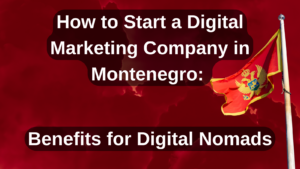The advent of Agile marketing marks a pivotal transformation in the operational dynamics of marketing teams across the globe. This approach, deeply rooted in the Agile methodologies initially developed for software engineering, transcends the traditional boundaries of marketing strategies. It offers a comprehensive framework that empowers teams to navigate the complexities of the digital era with unparalleled agility. The essence of Agile marketing lies in its ability to streamline processes, thereby enabling marketing professionals to respond to changes in consumer behavior, market trends, and technological advancements with speed and precision. This strategic pivot not only enhances operational efficiency but also cultivates an environment ripe for innovation, where creative solutions flourish and adaptability is the cornerstone of success.
The Dawn of Agile Marketing
The journey of Agile marketing began in the corridors of software development, where the Agile Manifesto laid the foundation for a revolutionary approach to creating software. This methodology, characterized by its iterative nature, collaborative ethos, and flexible planning, quickly demonstrated its value by significantly boosting productivity and elevating the quality of software products. Witnessing the transformative impact of Agile practices in the realm of software development, forward-thinking marketers began to explore the potential of applying these principles to the marketing domain. The digital marketing landscape, with its inherent volatility and the perpetual need for swift adaptation, presented the perfect arena for Agile methodologies to thrive. Thus, Agile marketing was born, bridging the gap between the methodical discipline of software development and the creative, dynamic world of marketing. This cross-pollination of ideas has since ignited a movement that redefines the way marketing teams operate, making Agile marketing a beacon of innovation and efficiency in the digital age.
By embracing Agile marketing, organizations unlock the potential to not only keep pace with the rapid evolution of the digital marketplace but to also proactively shape the trajectory of their marketing endeavors. This approach ensures that marketing strategies are not only aligned with current market dynamics but are also resilient and adaptable enough to anticipate and leverage future changes. As we continue to navigate the digital revolution, Agile marketing stands as a testament to the power of adaptability, collaboration, and innovation in driving marketing success.
Core Principles of Agile Marketing
Agile marketing, with its roots deeply embedded in the Agile methodology, has emerged as a beacon for marketing teams striving to navigate the tumultuous waters of the digital age. This approach is not merely a set of tactics but a profound shift in mindset, emphasizing flexibility, customer value, and continuous improvement. Let’s delve deeper into the core principles that make Agile marketing a transformative force in the realm of digital marketing.
Iterative Campaigns – The Pulse of Agile Marketing
The concept of iterative campaigns stands at the forefront of Agile marketing, challenging the traditional, monolithic approach to campaign development. In an Agile framework, marketing initiatives are broken down into smaller, more manageable pieces, known as iterations or sprints. This allows teams to launch parts of a campaign quickly and refine their strategies based on actual customer feedback and engagement metrics. The iterative process is cyclical, with each loop providing valuable insights that inform the next set of actions. This continuous loop of planning, executing, reviewing, and adjusting ensures that marketing efforts remain relevant and effective, even as market conditions change.
Data-Driven Decisions – Steering the Agile Marketing Ship
In the realm of Agile marketing, intuition and guesswork give way to data-driven decision-making. This principle underscores the importance of leveraging analytics and real-time feedback to guide marketing strategies. By analyzing customer behavior, engagement patterns, and conversion metrics, Agile teams can identify what resonates with their audience and adjust their tactics accordingly. This reliance on data ensures that every decision is grounded in evidence, reducing the risk of missteps and enhancing the potential for success. Moreover, data-driven insights enable marketers to predict trends and customer needs, allowing them to stay ahead of the curve.
Customer-Centric Focus – The Heart of Agile Marketing
At the core of Agile marketing lies a steadfast commitment to delivering value to the customer. This customer-centric focus ensures that all marketing efforts are aligned with the needs, preferences, and pain points of the target audience. Agile teams engage in continuous dialogue with customers, gathering feedback through surveys, social media interactions, and behavior analysis. This ongoing conversation helps marketers to craft messages and offers that truly resonate with their audience, fostering loyalty and driving conversions. By placing the customer at the center of their strategies, Agile marketers can create more personalized, relevant, and impactful campaigns.
Collaborative Effort – The Agile Marketing Symphony
Collaboration is the lifeblood of Agile marketing, bringing together diverse talents and perspectives to create a harmonious and effective marketing strategy. Agile principles advocate for cross-functional teamwork, breaking down the traditional silos that often hinder communication and innovation. Marketing teams, designers, content creators, data analysts, and customer service representatives work side by side, sharing insights and ideas. This collaborative environment fosters a culture of openness and mutual respect, where every team member contributes to the collective goal. By working together, Agile teams can leverage their combined expertise to develop more creative, cohesive, and customer-focused marketing initiatives.
The Journey to Agile Marketing Mastery
The shift towards Agile marketing is more than a mere change in tactics; it’s a fundamental transformation in how marketing teams conceptualize and execute their work. This journey, while rewarding, demands a strategic and committed approach from every member of the team. It’s about cultivating a mindset that embraces flexibility, collaboration, and continuous improvement. Here’s how organizations can navigate this transformative path effectively.
Cross-Functional Teams
The creation of cross-functional teams is a cornerstone of Agile marketing. This approach dismantles the traditional silos that often hinder communication and workflow between different departments. By bringing together individuals with a variety of skills and backgrounds, Agile teams are equipped to manage the entirety of a project—from initial concept to final execution—internally. This synergy not only accelerates the project lifecycle but also enriches the creative process, as diverse perspectives converge to innovate and solve problems. The key is to ensure these teams have the autonomy to make decisions and the resources they need to execute their ideas swiftly.
The Agile Framework Dilemma
Agile marketing doesn’t prescribe a one-size-fits-all solution. Instead, it offers a spectrum of frameworks, each with its own set of practices and methodologies. The choice between Scrum, Kanban, or Scrumban—or any other Agile framework—should be guided by the team’s specific needs, the nature of their projects, and the marketing environment they operate within. Scrum, with its structured sprints and roles, might suit teams looking for a more defined workflow. Kanban, on the other hand, offers flexibility and is ideal for teams needing to manage a continuous flow of tasks. Scrumban, a hybrid model, combines elements of both and can be tailored to fit a team’s unique requirements. The decision on which framework to adopt should be made with careful consideration of how each model aligns with the team’s goals, working style, and the dynamic demands of the marketing landscape.
The Continuous Improvement Ethos
The essence of Agile lies in its iterative approach, where the process is just as important as the outcome. Regular retrospectives are a critical component of this philosophy, providing teams with the opportunity to reflect on their performance, identify areas for improvement, and celebrate successes. These sessions foster a culture of transparency and continuous learning, where feedback is not only encouraged but is a vital part of the team’s evolution. It’s through this cycle of planning, executing, reviewing, and adapting that Agile teams enhance their efficiency and effectiveness over time. The goal is to create a feedback loop where insights from each project inform future strategies, ensuring that the team remains adaptive and innovative in an ever-changing marketing environment.
Agile Marketing in Action
Agile marketing, when effectively implemented, revolutionizes the way marketing teams operate, making them more responsive and dynamic in the face of the digital era’s challenges. This approach enables teams to swiftly adjust their strategies, aligning them with the ever-changing preferences of their target audience and the latest market dynamics. The agility to pivot quickly is not just about keeping pace; it’s about setting the pace, leading the market through innovation and responsiveness.
Campaigns under the Agile framework are characterized by their rapid deployment and iterative nature, allowing for real-time adjustments based on ongoing feedback loops. This ensures that marketing efforts are not only timely but also highly relevant and personalized, catering to the specific needs and desires of customers at every interaction. The focus shifts from pushing content to creating value, transforming every touchpoint into an opportunity to enhance the customer experience.
Agile marketing places a strong emphasis on data-driven decision-making. By prioritizing data over intuition or past practices, teams can make informed choices that are more likely to resonate with their audience and achieve desired outcomes. This evidence-based approach reduces the risk associated with marketing investments and increases the potential for measurable success.
Embracing Change – The Agile Way to Marketing Success
Transitioning to an Agile marketing model presents its own set of challenges, particularly in organizations where traditional methods are deeply ingrained. Resistance to change can be a significant barrier, as it requires a shift not only in processes but also in mindset. The move towards a more collaborative, decentralized approach to decision-making can be daunting for teams used to hierarchical structures.
To successfully navigate these challenges, leadership must play a pivotal role. It requires a vision that clearly articulates the value of Agile marketing and a commitment to driving the change throughout the organization. This includes providing ongoing education and support to help team members adapt to new ways of working, fostering an environment where collaboration and innovation can thrive.
Fostering a culture that embraces experimentation and learning from failures is crucial. This cultural shift can empower teams to take calculated risks, leading to breakthroughs in marketing strategies and campaign execution.
The Future of Agile Marketing – A New Paradigm
Looking forward, Agile marketing is poised to become a fundamental strategy for organizations aiming to remain competitive in the digital age. Its adaptability, customer-centric approach, and focus on continuous improvement align perfectly with the demands of today’s fast-paced, ever-evolving market landscape.
As more organizations witness the tangible benefits of implementing Agile methodologies in their marketing efforts, we can anticipate a broader adoption of this approach. Agile marketing is set to evolve from a methodology to a core philosophy that underpins all marketing activities, driving efficiency, innovation, and success in an increasingly digital world.
Conclusion
Agile marketing offers a path forward for marketing teams looking to thrive in today’s fast-paced environment. By embracing the principles of Agile, teams can enhance their responsiveness, improve collaboration, and deliver greater value to their customers. As we look to the future, the principles of Agile marketing will undoubtedly play a crucial role in shaping the strategies of successful organizations.





